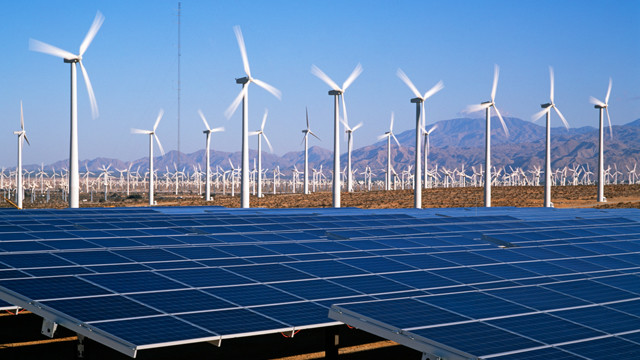Africa’s Pivotal Role in the Global Energy Transition
As the world grapples with the urgency of the climate crisis, Africa holds a crucial position with the potential to shape the direction of the global energy transition. While the international community has long lamented Africa’s vulnerability to climate change, recent multilateral forums have thrust the continent into the limelight. This attention underscores Africa’s potential to become a linchpin in the fight against the climate crisis.
Unlocking Africa’s Clean Energy Potential
Africa is a treasure trove of clean energy resources. With abundant reserves of critical minerals, such as cobalt essential for electric vehicle batteries, and unmatched solar energy potential, the continent is poised to play a vital role in the global shift towards renewable energy. However, despite this immense potential, Africa receives only 2% of global investments in clean energy. This paradox needs to be addressed to unlock the continent’s full potential.
Africa’s Energy Landscape: Challenges and Opportunities
Africa’s current energy mix is heavily reliant on fossil fuels, which account for 77% of the continent’s total energy supply. Renewables like wind, solar, and geothermal contribute only a marginal share. This energy imbalance not only exacerbates environmental concerns but also perpetuates energy access disparities, leaving millions without reliable electricity.
The continent’s burgeoning population, urbanization, and industrialization are driving an exponential rise in energy demand, highlighting the need for a transition to clean, sustainable energy sources. Countries like Kenya, Namibia, and South Africa are setting ambitious renewable energy targets, harnessing their abundant solar and wind resources.
Africa’s vast reserves of critical minerals, including cobalt, manganese, and lithium, position the continent to play a pivotal role in the global energy transition. These minerals are vital for energy storage and electric vehicles, aligning with the world’s shift towards cleaner transportation solutions. Effective natural capital mapping and mineral exploration are essential to unlock these reserves. In a recent white paper titled “The Strategic Importance of Natural Capital Mapping and Mineral Exploration in the Energy Transition,” Xcalibur Multiphysics provides valuable insights into how effective natural capital mapping and mineral exploration can contribute to a sustainable and resilient energy future.
Investment Opportunities and Challenges
Africa’s renewable energy potential is undeniable, yet it remains largely untapped. One of the major impediments is the high cost of capital for clean energy projects, which can be two to three times higher than in advanced economies. This financial barrier hinders developers from pursuing economically viable projects capable of delivering affordable energy solutions to the continent’s growing population.
The financing landscape for renewable energy projects in Africa is evolving. Traditional reliance on sovereign guarantees faces challenges due to mounting debt burdens and shifting economic priorities. This has spurred the rise of energy intermediaries, which secure offtake agreements and enhance the bankability of renewable energy projects.
Africa Investment Consortium (AIC) plays a crucial role in this evolving landscape. By acting as an intermediary between renewable energy project developers and utilities, AIC streamlines the process, making energy markets more efficient and bankable. AIC provides credit support and risk mitigation mechanisms, ensuring that clean energy projects receive the necessary funding to thrive.
Empowering the Renewable Energy Sector
To realize the full potential of these nascent business models, development finance institutions (DFIs) must adapt their roles and embrace a higher risk appetite by supporting energy intermediaries like AIC. By doing so, DFIs can mobilize domestic financing for clean energy initiatives, bolster the performance of vital power pools, and expand the capital pool available for renewable energy projects.
AIC’s strategic approach and comprehensive services ensure that renewable energy projects in Africa receive the support they need from start to finish. By connecting businesses with financing sources, communicating their value, and negotiating investment terms, AIC oversees the complete investment process, making it the best avenue for channeling investments into Africa’s renewable energy sector.
Conclusion: Seizing the Renewable Energy Opportunity with AIC
Africa’s role in the global energy transition is not just a necessity but a promise of great potential. With vast renewable energy resources, critical minerals, and a growing commitment to sustainability from both the public and private sectors, the continent can be a driving force in combating climate change. While the challenges are formidable, the momentum is palpable, bolstered by innovative solutions and new climate-smart partnerships.
By partnering with Africa Investment Consortium, investors gain access to the continent’s vast potential, contributing to a cleaner, more resilient energy future for all. AIC’s strategic approach and comprehensive services make it the best avenue for channeling investments into Africa. Let’s act now, with AIC leading the way, and ensure Africa becomes a driving force towards a sustainable energy future.

